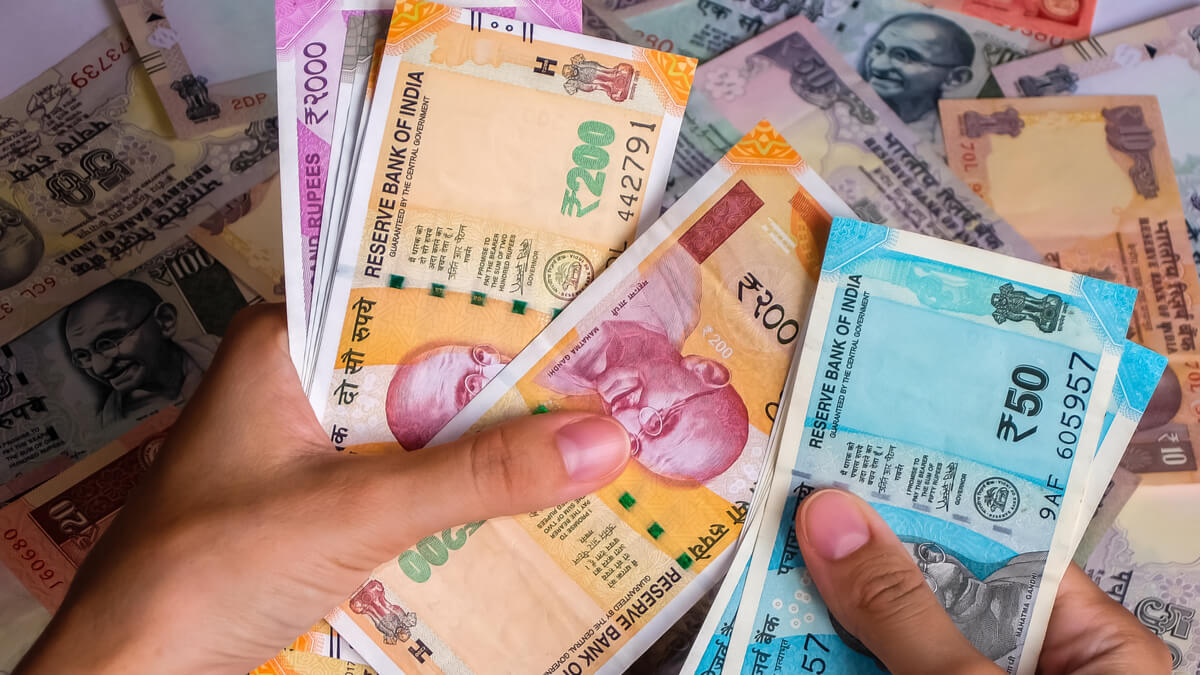Best Credit Card for Airline Miles in India (2026): Features & Charges
We compare the best credit cards in India for frequent flyers, from co-branded airline cards to flexible reward programs like Axis Atlas and Amex.

The Wise Travel card lets you hold 40+ currencies and spend at the interbank exchange rate with no forex markups or hidden fees - now available to order for free (Limited time offer, while stocks last).
Order your free Wise Travel card 💳
When it comes to domestic money transfers in India there are three different acronyms that are important to know- NEFT, IMPS, and RTGS. While all are online money transfer services provided through Indian banks, each operates with different types of settlements, different timings, and transaction limits. So we’re here to make it easier to understand what all three mean and when to use each.
| And if you need to transfer money to outside India, take a look at how Wise can help you send money with only one low upfront fee |
|---|
NEFT stands for National Electronic Funds Transfer. It lets individuals, companies, and organizations do one-to-one bank transfers digitally. So even if you and your recipients are associated with different banks, you can still deposit directly into their bank account using NEFT. The system only works however if both banks are NEFT-enabled, although most banks in India are these days. There is no maximum or minimum amount that can be sent using NEFT, unless you are doing an in-person cash-based remittance within India where the cap is ₹50,000.
To start, you will need to make sure you have your recipient's bank account information as well as their bank’s IFSC, or Indian Financial System Code, a unique identifier for their bank branch. There are no charges to receive money, and the RBI recently launched a push to not have any charges on doing an NEFT transfer too.
Settlements run on the half-hour between typical banking hours, 8 am-7 pm. So all settlements are done on a 30-minute basis in batches. So all the transfer requests received within those 30 minutes are processed together. After that, your recipient can expect the funds within 2 hours from the batch settlement. They’ll be notified by email or SMS.
NEFT is simple to use and can be applied for sending money to your friends or family, making payments or paying rent. As long as you have the money in your bank account, there are no limits on how often you can use it, so from small transfers like settling dinner’s bill to paying for a house.
One last note, NEFT can be used to transfer from and to an NRE/ NRO account within the country. But NEFT is not available for international transactions.¹
When Immediate Payment Service, or IMPS, came along it changed how and when someone can do a domestic transfer. It is a real-time fund transfer service that grants instant interbank transfers from your bank account using your banking app, mobile payment, ATM, SMS or at the branch. Similar to NEFT, your bank will need to be a participating member of IMPS. There are currently 498 member banks so there is a high likelihood your bank will be a member.²
While NEFT and, as you’ll see, RTGS, are dependent on banking hours, IMPS allows for transfers 24 hours a day, 7 days a week, 365 days a year. So with IMPS, at any time the money can be debited from your bank account and credited to the beneficiary bank account instantly. You can use IMPS by using either your recipient’s
IMPS is great to use for immediate transfers that you can do at any time. So whether it is a weekend, early in the morning or a holiday, you can transfer money to your friend or payee. Plus you can do it with just their mobile number. But to note, to send by only using the mobile number requires that your beneficiary is set up and registered to do so. Otherwise, the other options are available.
Charges for using IMPS are dependent on the bank you are using, however, State Bank of India recently waived their fees for the service.³ Similarly, the bank decides what the minimum and maximum transaction limits are for IMPS. But typically, the minimum is ₹1 and the maximum is around ₹200,000 but check with your bank first.⁴
RTGS stands for Real-Time Gross Settlement. It is another option for online money transfer with your bank account. RTGS transfers happen in real-time and the settlement is not done in batches but on a one by one basis. There are 140,000 RTGS-enabled bank branches in India.⁵
Similar to the other options, this is a safe and secure system to transfer money in India. Unlike IMPS, RTGS only settles during banking hours. So if its a bank holiday or after working hours, your transfer has to wait until the bank opens back up. And the fees are not set by the Reserve Bank of India, so the banks are free to decide their own charges for the service.
Unlike the other two options, RTGS is primarily reserved for large transactions as the minimum per transfer is ₹200,000. What you will need for a transaction is:
Once it is submitted online or through your banking app, the beneficiary’s bank account must be credited immediately or within 30 minutes.⁶
Since the baseline amount to send with RTGS is ₹200,000 and there is no maximum cap on how much you can send, any of your large payments can be done this way. Whether you are receiving rent or security deposits, or you need to pay for educational expenses to a bank account, you can use RTGS through your bank.⁷
Here is a break down the major differences between the 3 online bank transfer options.
| NEFT | IMPS | RTGS | |
|---|---|---|---|
| Settlement type | In 30 minute batches | Immediate | Immediate |
| Timing | Bank working days, 8am-7pm | 24 hours/7 a week /365 days | Bank working days, 8am-7pm |
| Transaction limits | None, but can depend on the bank. ₹50,000 if doing NEFT in person with cash | It depends on the bank, but typically maximum is ₹200,000 | The minimum is ₹200,000, but no maximum |
Want to transfer money abroad just as easily online? Try Wise.
You always get the mid-market exchange rate, which is the rate banks use themselves to send money, and then it is just one upfront low fee. This is what makes Wise cheaper, and you can do it from the comfort of your own home or on the go with our app. See for yourself with our honest online comparison tool, so even if we are not always the cheapest, we will let you know.
Sources used for this article
All sources checked as of 26 September, 2019
*Please see terms of use and product availability for your region or visit Wise fees and pricing for the most up to date pricing and fee information.
This publication is provided for general information purposes and does not constitute legal, tax or other professional advice from Wise Payments Limited or its subsidiaries and its affiliates, and it is not intended as a substitute for obtaining advice from a financial advisor or any other professional.
We make no representations, warranties or guarantees, whether expressed or implied, that the content in the publication is accurate, complete or up to date.

We compare the best credit cards in India for frequent flyers, from co-branded airline cards to flexible reward programs like Axis Atlas and Amex.

Discover the best credit cards for airport lounge access in India.

If you're looking for airport lounge access, compare the best SBI credit cards in India to find the perfect fit for your domestic and international trips.

Looking for lounge access when you travel? Compare the top ICICI credit cards in India for domestic and international travels.

What is an international debit card and how does it work? Compare features, benefits, and charges for the best international debit cards in India.

Thinking about getting the Amex Platinum Travel Card? Explore its fees, rewards, perks, lounge access, and overseas charges.